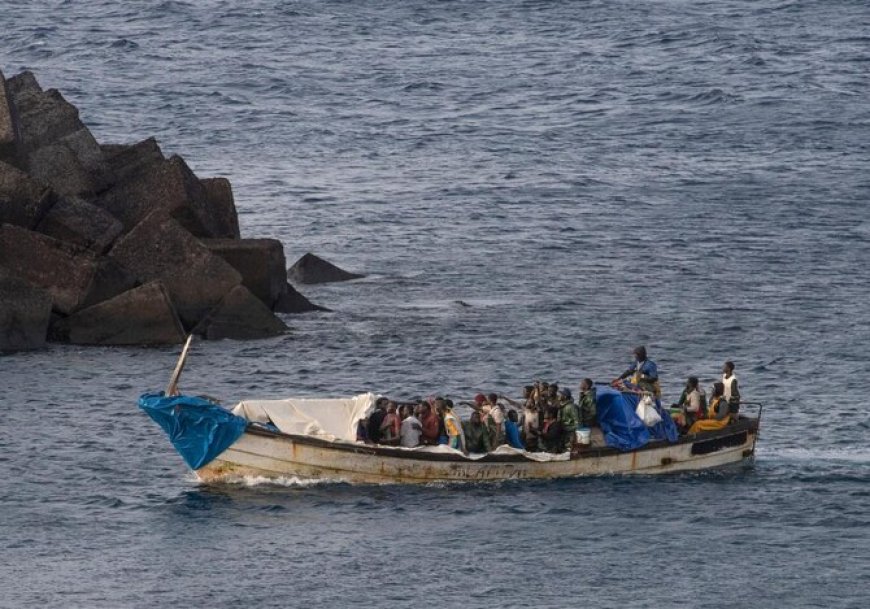The Canary Islands Tragedy: An Explicit Reminder of the West's Ignorance Regarding the Migrant Crisis

A terrible reminder of the continuous humanitarian catastrophe at Europe's borders, the tragedy off the coast of Spain's Canary Islands has a boat carrying 84 migrants capsizing and at least nine dead and 48 still missing. Among the dead was a young child, just 12 to 15 years old, a heartbreaking fact that emphasizes the human cost of a migrant crisis Western governments have been ignoring and ineffective policies have caused.
European countries have long praised their dedication to humanitarian ideals and human rights, but their policies—or lack thereof—tell a different picture regarding migration. This catastrophe is only the most recent in a long run of tragedies let to develop due to Europe's neglect of the underlying reasons of migration and its refusal to provide significant remedies. European governments have concentrated on strengthening their borders, making the Mediterranean and Atlantic into graveyards for those escaping conflict, poverty, and persecution rather than building safe and legal routes for migrants.
With crossings from Africa to the islands rising astonishingly 154% this year alone, the Canary Islands have become among the most dangerous migrant paths. The EU border agency Frontex reports that over 21,620 migrants travelled in the first seven months of 2024. There is not a vacuum in which this migration is occurring. It directly results from the instability in nations like Mali, Mauritania, and Senegal—nations devastated by war, financial crisis, and climate change. Europe's answer, however, has been to militarize its borders and assign blame for these problems to nations already under hardship.
The Part the West Played in Starting the Crisis
The West's involvement in producing the exact circumstances forcing people to escape is especially heinous. Along with the United States, European nations have lengthy history of intervening in Africa to support despotic governments and participate in exploitative economic practices that have left many countries poor and insecure. For common people, the results of these acts have been disastrous; they have driven them to risk their life on perilous maritime trips in quest of safety and opportunity in Europe. When these immigrants arrive on European coastlines, however, they are greeted with unfriendly immigration laws, barbed wire, and detention facilities rather than sympathy.
Particularly in its territories like the Canary Islands, which welcome thousands of migrants annually, Spain in particular has been leading front-stage in this dilemma. Although NGOs like Walking Borders and Spanish rescue teams have tried their best to save lives, the larger European reaction has been to view these migrants as a security hazard rather than persons in great need. A wake-up call should come from the knowledge that 48 persons remain missing from this most recent calamity. Before Europe admits that its migrant strategy is not only failing but also actively aggravating the crisis, how many more lives have to be lost?
A Cycle of Tragic Repeating Events
This is not a one-off event. Actually, it rivals a 2009 catastrophe near Lanzarote that lost 25 people to become the worst migrant disaster in the area in over 30 years. According to reports, the migrants on the capsized boat had been at sea two days without food and had started to panic just before the boat sank. Although rescue teams made great attempts, wind and poor visibility made the operation very challenging.
Anselmo Pestana, a government official from Spain representing the Canary Islands, observed that the migrants came from Mali, Mauritania, and Senegal— all beset with unresolved conflicts Europe has done little to assist in resolving. The boat sank during the rescue effort even though it had hailed for aid some four miles east of El Hierro. Though Western governments behave as though it's a regrettable accident rather than a predicted result of their actions, this sad situation keeps happening again and time again.
Europe's Illogical Attention on Border Control
The most obvious flaw in Europe's reaction to the migrant crisis is its single emphasis on border security. While outsourcing migration to nations like Morocco, Libya, and Turkey, where human rights violations are common, the European Union has lavished billions upon Frontex, its border agency. These solutions only drive the issue farther from Europe's coast, out of sight and out of mind; they do nothing to solve the fundamental causes of migration.
This strategy also overlooks the reality that, unlike certain far-right politicians would have us think, the great majority of migrants are not "invading" Europe. Most of them are running from circumstances so bad they would be ready to die in order to get away. Just trying to live, the migrants who perished or vanished close to the Canary Islands Europe has to acknowledge their humanity and take responsibility for the part it has helped to produce the circumstances forcing them to escape, not punish them as criminals.
Time for an All-Inclusive and Human Reaction
Europe has to take a thorough and compassionate attitude to migration if it is serious about stopping other disasters like the one off El Hierro. This implies helping sustainable development, advancing peace, and combating climate change in Africa to so address the underlying reasons of migration. It also involves giving immigrants safe and legal routes to get to Europe, therefore sparing them from having to risk their life on perilous sea trips.
The conscience of European leaders should be much influenced by the deaths of these nine migrants—including a kid. The emphasis should change from only stopping migration to saving lives and preserving the ideals of human decency and compassion Europe claims to support as the search for the 48 missing gets underway.
The Mediterranean and Atlantic will remain mass cemeteries for the most vulnerable people of the planet until Western governments are ready to face their part in prolonging the catastrophe. The moment for action is long past.













































